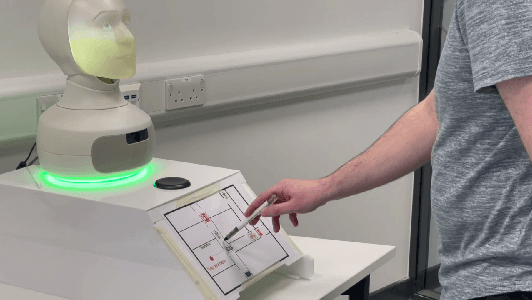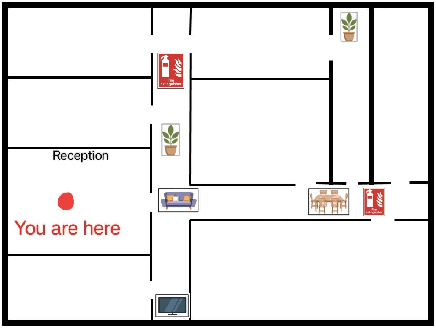Yann Schlosser
FurNav: Development and Preliminary Study of a Robot Direction Giver
Sep 25, 2023



Abstract:When giving directions to a lost-looking tourist, would you first reference the street-names, cardinal directions, landmarks, or simply tell them to walk five hundred metres in one direction then turn left? Depending on the circumstances, one could reasonably make use of any of these direction giving styles. However, research on direction giving with a robot does not often look at how these different direction styles impact perceptions of the robots intelligence, nor does it take into account how users prior dispositions may impact ratings. In this work, we look at generating natural language for two navigation styles using a created system for a Furhat robot, before measuring perceived intelligence and animacy alongside users prior dispositions to robots in a small preliminary study (N=7). Our results confirm findings by previous work that prior negative attitudes towards robots correlates negatively with propensity to trust robots, and also suggests avenues for future research. For example, more data is needed to explore the link between perceived intelligence and direction style. We end by discussing our plan to run a larger scale experiment, and how to improve our existing study design.
 Add to Chrome
Add to Chrome Add to Firefox
Add to Firefox Add to Edge
Add to Edge